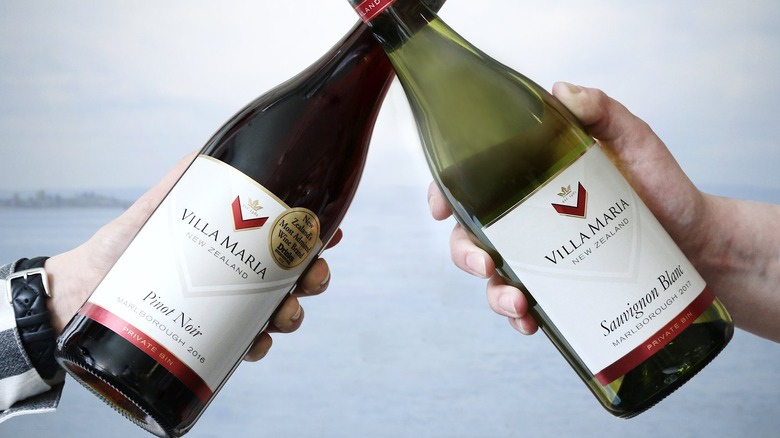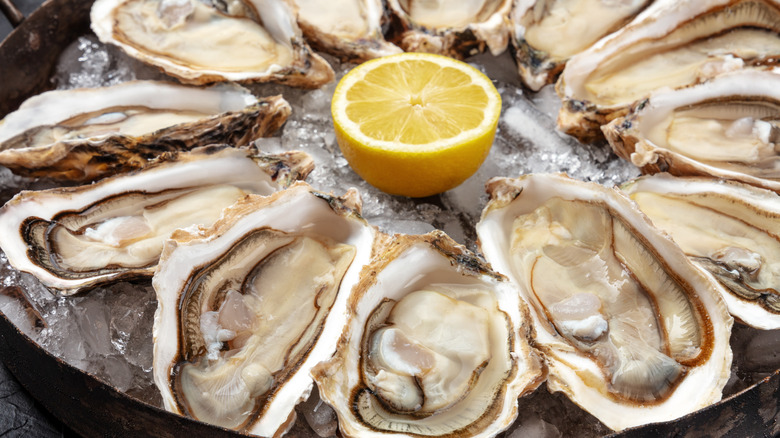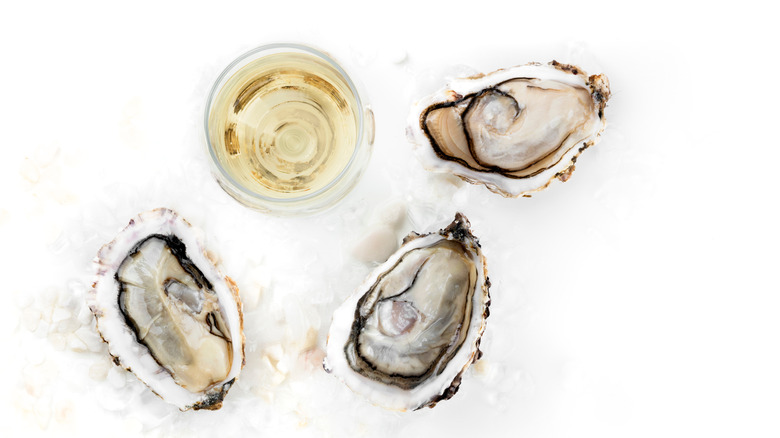How This Wine Brand Is Using Oysters To Aid Sustainability
As sustainability continues to be top-of-mind in modern times, brands around the world are finding ways to make a difference. In particular, Villa Maria Wines is using the classic pairing of Sauvignon Blanc and oysters to make a difference by partnering with the Billion Oyster Project to turn a spotlight on regenerating the waterways of New York City.
The New Zealand-based wine brand has four pillars of sustainability it works with — invest in people, tread lightly, respect the land, and inspire conscious consumers. "Our love for this planet and our communities guides us to put sustainability at the forefront of all that we do, taking care to preserve our resources so they last well into the future. It's not only about what's happening in New Zealand — we have a global mindset and like to support communities throughout the world where people enjoy our wines," Sarah Szegota, head of marketing and communications at Villa Maria, told Mashed.
By partnering with the Billion Oyster Project, the wine company can adhere to these missions. Oysters reefs, as the project notes, provide habitat for many marine species, have the ability to filter water, and can help shield New York City shorelines from storm damage. "Sauvignon Blanc and oysters is a perfect pairing. The zesty citrus and bright acidity paired with a briny oyster is heavenly! This culinary partnership is a wonderful fit and a great way to spread the word about what Villa Maria and Billion Dollar Oyster Project are doing," Szegota added.
What is the Billion Oyster Project?
Founded in 2014 and headquartered on New York's Governor's Island, Billion Oyster Project is a non-profit that is focused on rebuilding the oyster reefs in the New York Harbor. It's a place in which the oyster population used to flourish — Manhattan used to be called "The Big Oyster", per Atlas Obscura – but the city's sewage system destroyed these reefs in less than 100 years' time.
Started as a project of The Urban Assembly New York Harbor School, where the founders worked at the time, Billion Oyster Project has grown tremendously. The restoration initiative, which has been supported by 10,000 volunteers, is driven by community scientists, volunteers, and more than 8,000 local students in STEM education programs across 100 New York City schools. The program also works in conjunction with restaurants citywide. Prior to the outbreak of COVID-19, BOP partnered with 75 restaurants in Brooklyn, Manhattan, and Queens to divert their oyster shells from landfills, and restore them to New York Harbor, per the official website.
The rejuvenation efforts aren't futile, either. More than 75 million live oysters have been restored to New York's Harbor, and 11.8 million pounds of shells have been collected, according to the New York Times. Although, as both the paper and Billion Oyster Project report, none of these oysters are ripe for human consumption as the harbor is still too polluted.
How does the partnership with Villa Maria Wines work?
According to Sarah Szegota, head of marketing and communications at Villa Maria, the partnership came to the wine company through a passionate import partner who lives in and loves New York City — and it was the strong synergy between Billion Oyster Project and Villa Maria's shared values as well as their perfect food and wine pairings that made it an obvious match.
"We admire their mission to help restore oyster reefs to New York Harbor through public education, and share their values and belief in the importance of biodiversity. If we can increase awareness of Billion Oyster Project and encourage wine lovers to think about how they can contribute to a healthy and biodiverse planet through a local initiative, we have accomplished what we set out to achieve," Szegota told Mashed.
The ultimate goal, according to Billion Oyster Project, is to have 1 billion oysters in the harbor by 2035, something that Villa Maria supports through financial support, educational programs, event sponsorships, and more. "We admire the work they do in restoring a lost habitat in New York, [and] they motivate a generation to care about the ecosystem around them," added Szegota. "We hope to continue working with Billion Oyster Project and other like-minded groups to make a difference in taking care of the earth, so the earth takes care of us."


